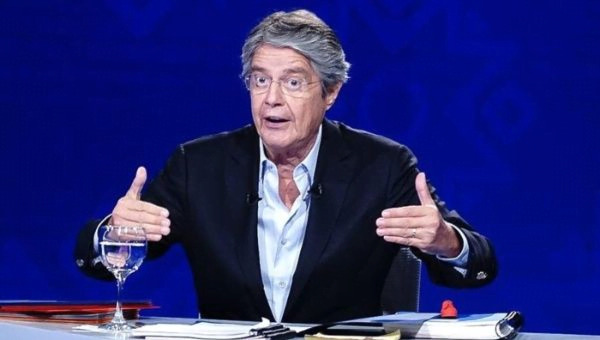
Guillermo Lasso, substantially increased his earnings during the year 2020, in the middle of the COVID-19 pandemic.
Quito, April 1 (RHC)-- In Quito, the Ecuadorean capital, media reports revealed studies that show presidential candidate and millionaire banker, Guillermo Lasso, substantially increased his earnings during the year 2020, in the middle of the COVID-19 pandemic.
The studies, based on public data from the Internal Revenue Service (SRI) of Ecuador, show that Lasso earned 6.4 million dollars over the past year. This amount exceeds what was obtained in the previous three years, since in 2019 he had accumulated 2 million dollars; in 2018 2.3 million; and in 2017 4.3 million.
The amount earned by Lasso during 2020 is equivalent to 16,000 basic salaries in Ecuador, precisely in the year in which one million Ecuadorians lost their jobs due to the crisis aggravated by the pandemic.
The studies show that Lasso's income comes from the Bank of Guayaquil, the third financial institution in the country and one of the most "precise" in executing the guarantees of its debtors, that is to say, in taking over the assets of those who could not pay their debts, even in the midst of the exceptional situation posed by the COVID-19. However, the matter does not stop there, since Lasso not only increased his net profits in 2020, but there is evidence that he evaded the payment of a tax established in the country to help the victims of the earthquake in Manabí in 2016, as shown by the analysis of public data from the SRI.
That tax was to be paid on the basis of personal wealth in 2017, so Lasso, at the time owner of securities valued at more than $144 million, should have paid just over $1.34 million under the tax.
However, the study shows that Lasso hid his participation in four companies (Banco Guayaquil S.A., Banisi Holding S.A., Corporación Multibg S.A. and Fideicomiso de Administración Proyecto GYD) so that they would not be considered in his patrimony and, thus, pay less in his tax liability.

